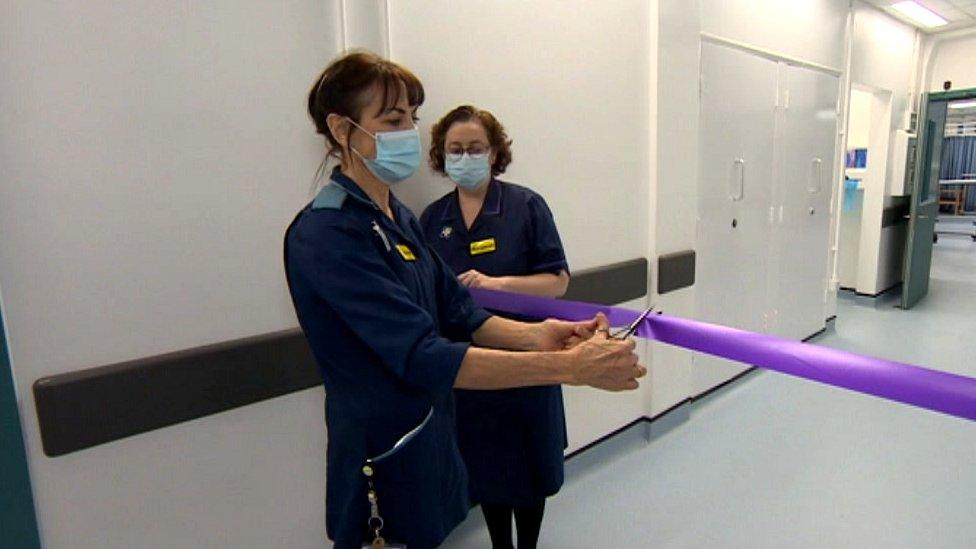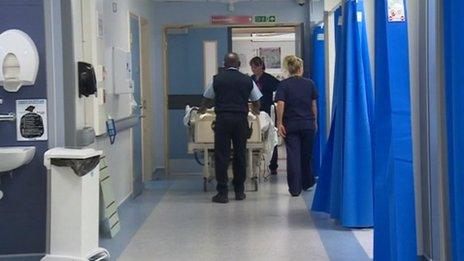Birmingham NHS trust fined over deaf patient consent failings
- Published

The man was admitted six times to Birmingham's Good Hope Hospital in 2019
An NHS trust has been fined £8,000 for failing to get consent from a deaf man or his family for hospital procedures.
The Care Quality Commission (CQC) issued two fixed penalty notices to University Hospitals Birmingham (UHB) NHS Trust.
Staff assumed the man did not have the capacity to make decisions, their investigation found.
The hospital accepted the failings and has learnt from them, a spokesperson for the trust said.
The 55-year-old man, who was also autistic and had epilepsy, was admitted six times to Good Hope Hospital between May and October in 2019.
He communicated via British Sign Language (BSL) and lip-reading, the CQC said.
Three times the hospital failed to follow regulations and get consent for using feeding tubes for the man when he was struggling with food, the watchdog's investigation found.
For two of the procedures, staff made no attempts to find a BSL interpreter, involve his family or talk with his Lasting Power of Attorney (LPA).
An LPA is someone who can be nominated by a person to take financial and health decisions on their behalf if they lose the ability to act for themselves.
For the third procedure, staff only made contact with the man's LPA.
'More effort'
The CQC's head of hospital inspection, Bernadette Hanney, said the trust's failings were about consent, particularly when linked to mental capacity.
"The trust should have made much more effort to communicate with him in a way that he understood, every time," she said.
The CQC said it was satisfied the trust had training and policies in place for the future as long as they were followed.
A spokesperson for UHB said the man died in 2020 and they referred the case after examining the care he received.
The failings did not have an impact on his care or his death, they added.

Follow BBC West Midlands on Facebook, external, Twitter, external and Instagram, external. Send your story ideas to: newsonline.westmidlands@bbc.co.uk, external
- Published25 March 2022

- Published7 February 2022

- Published14 January 2014
